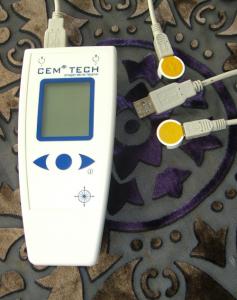The Bright Side of Eating Dark Chocolate
02-10-2013 / By:
There are 3
main types of chocolate; dark chocolate, milk chocolate and white chocolate. Even
though milk chocolate is preferred amongst most chocolate lovers, dark
chocolate has the highest nutritional value. The reason rests with dark
chocolate's high cocoa content. The average cocoa content of dark chocolate is
45 to 80 percent. Milk chocolate typically contains 5 to 7 percent while white
chocolate contains none. White chocolate is therefore not considered a
significant source of antioxidants.
Packed with
natural antioxidants, dark chocolate and cocoa is classified in the same healthy
category as green tea and blueberries. That's because chocolate comes from cocoa
beans which grow on the cacao tree and are full of natural plant nutrients.
Most of the studies to date highlight dark chocolate's health values because it
has the highest percentage of cocoa solids, therefore more flavanol
antioxidants.
Cocoa
contains flavanoids which help protect plants from environmental toxins and help
repair damage. They can be found in a variety of foods, such as fruits and
vegetables. When we eat foods rich in flavonoids, it appears that we also
benefit from this "antioxidant" power.
Flavanols are the
main type of flavonoid found in cocoa and chocolate. In addition to having
antioxidant qualities, research shows that flavanols have other potential
influences on vascular health, such as lowering blood pressure, improving blood
flow to the brain and heart, and making blood platelets less sticky and able to
clot.
Albeit it’s
sweet flavor, dark chocolate has a low glycemic index similar to that of
oatmeal – meaning it does not send your blood sugar spiking. The antioxidants
in dark chocolate may repair unhealthy blood vessels that often precede the
development of diabetes while also possibly improving cells' sensitivity to
insulin and glucose.
Just like
any plant-based plants, dark chocolate contains an array of minerals such as
copper, magnesium, potassium, calcium, and iron. It also contains traces of
several basic vitamins, including vitamins C, A, E and D.
Most
commercial chocolates that we buy are highly
processed. Although it was once believed that dark chocolate contained the
highest levels flavanols, recent research indicates that, depending on how the
dark chocolate was processed, this may not be true. The good news is that most
major chocolate manufacturers are looking for ways to keep the flavanols in
their processed chocolates. But for now, your best choices are likely dark
chocolate over milk chocolate (especially milk chocolate that is loaded with
other fats and sugars) and cocoa powder that has not undergone Dutch processing;
cocoa that is treated with an alkali to neutralize its natural acidity).
Before you
get too excited, you should be careful about selecting certain types of dark
chocolates. The chewy caramel-marshmallow-nut-covered dark chocolate is by no
means a heart-healthy food option. Beware of those extra ingredients that can
add lots of extra fat and calories. There is currently no established serving
size of chocolate to help you reap the cardiovascular benefits it may offer,
and more research is needed in this area. However, you no longer need to feel
guilty if you enjoy a small piece of dark chocolate once in a while.






